SUMMARY
This is AI generated summarization, which may have errors. For context, always refer to the full article.
![[OPINION] Intentional COVID-19 infection to acquire immunity is a bad idea](https://www.rappler.com/tachyon/2021/12/TL-Glasgow-experience-December-2-2021.jpeg)
Both of us are medical doctors and public health professionals, and one of us is an epidemiologist. And we say that intentionally infecting people with SARS-CoV-2 in order to develop immunity – as suggested by some commentators – would be ineffective, dangerous, and unethical. Here’s why :
Vaccine hesitancy is the real problem
Resorting to intentional infection just because the current vaccination rates are slow is defeatist. The solution is to re-energize the vaccination campaign, not to give in to fatalism. Re-energizing the vaccination campaign starts with understanding the historical and current causes of slow COVID-19 vaccine uptake.
Natural does not mean harmless
There is a misconception that anything natural is desirable and good for us. Just because Omicron causes milder disease than Delta does not mean it is harmless. People who are elderly, have comorbidities, or are immunocompromised are at risk for severe disease or death from Omicron infections.
Increasing transmission will also increase the likelihood of viral mutation, leading to new variants that can escape the population’s current immunity, one that was built at great cost.
Infection is an inferior vaccine
The dose of the virus that one will get if infected cannot be measured. Firstly, if the dose is too low, immunity will not develop – that is, its “efficacy” is unknown. Secondly, if the dose is too high, severe adverse effects, like hospitalization and death, will ensue. Therefore, its safety is also unknown.
If a vaccine’s efficacy and safety were unknown, it would never receive approval by any vaccine regulatory authority. If we would not accept this for any vaccine, why would we accept this for an idea that has never been tested?
Lastly, there is no guarantee that infection with the current variant will protect against future variants.
The side effects of vaccines are mild and of short duration, usually a day. Complicated vaccine side effects are extremely rare and are less serious compared to the consequences of severe COVID-19 infections. Even mild COVID-infected individuals have to be isolated for seven days, away from work and school due to symptoms like fever, sore throat, body pains, loss of smell, etc. Some may even suffer from the disability of long COVID.
‘Natural’ infection has ethical implications
The first tenet of the practice of medicine is “Do no harm.” No medical doctor would recommend a patient to be intentionally infected with the virus as a way of developing immunity. This is the principle of beneficence. Vaccines are a more effective and safer route of achieving the same objective.
Infected individuals can infect family, friends, coworkers, or schoolmates, some of whom could be high-risk and all of whom have not granted permission to be infected. This is the principle of autonomy. Infecting humans with the SARS-CoV-2 virus is different from infecting cells in a Petri dish. People have multiple organ systems that can be adversely affected by the infection and are connected to social networks that can be infected unintentionally and without their consent.
The suggestion to build an immunity wall using intentional infections is dangerous, ineffective, and unethical. The SARS-CoV-2 virus is an infectious agent to be avoided; it is not a vaccine. – Rappler.com
John Q. Wong, MD, MSc, and Carlo Yao, MD, MBA, are from EpiMetrics Inc., a public health research institution focused on the achievement of health equity through rigorous and creative conception, execution, translation, and communication of health systems and policy research.
Add a comment
How does this make you feel?
![[ANALYSIS] Assessing the COVID-19 immunity wall in the Philippines](https://www.rappler.com/tachyon/2022/09/COVID-19-Immunity-wall-ph-September-8-2022.jpg?fit=449%2C449)




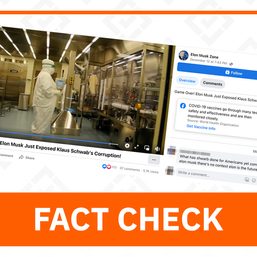
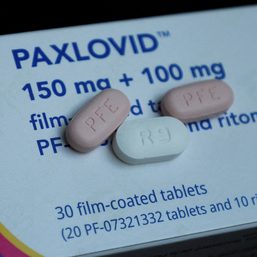

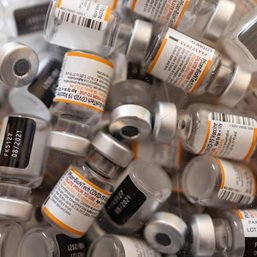
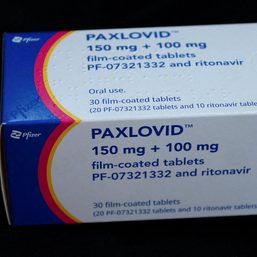
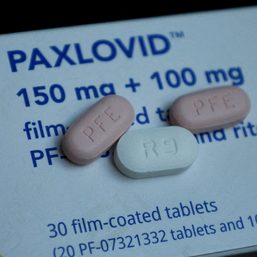

![[Rappler’s Best] US does propaganda? Of course.](https://www.rappler.com/tachyon/2024/06/US-does-propaganda-Of-course-june-17-2024.jpg?resize=257%2C257&crop=236px%2C0px%2C720px%2C720px)

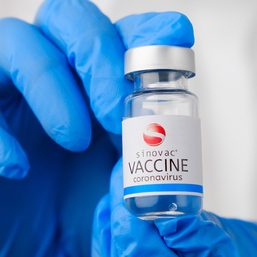
There are no comments yet. Add your comment to start the conversation.